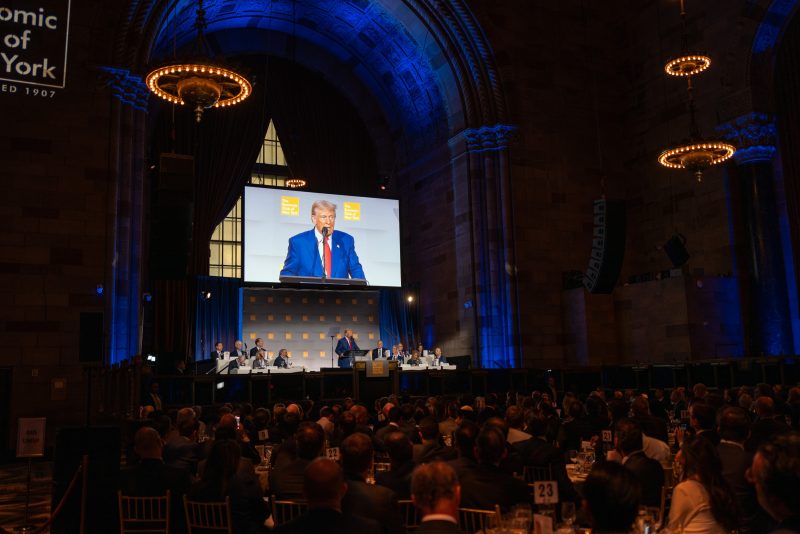In recent months, former President Donald Trump has taken a more aggressive stance on global trade, issuing threats and warnings that have raised concerns among the international community. Despite these increasingly extreme statements, the GOP has downplayed the potential impact, suggesting that Trump’s rhetoric may not translate into significant policy changes.
Trump’s recent remarks have centered on his desire to renegotiate trade deals and impose tariffs on countries that he believes are engaging in unfair trade practices. The former President has particularly targeted China, accusing the country of manipulating its currency and stealing intellectual property from American companies. These threats have sparked fears of a trade war that could have far-reaching consequences for the global economy.
While some within the GOP have expressed reservations about Trump’s aggressive approach to trade, others have sought to downplay the significance of his statements. Senator Mitch McConnell, the Senate Minority Leader, has suggested that Trump’s comments should not be taken too seriously, pointing to the lack of concrete policy proposals to back them up.
Critics argue that the GOP’s dismissive attitude towards Trump’s threats is misguided and could have serious repercussions for the economy. By not acknowledging the potential impact of Trump’s rhetoric on global trade, the party may be underestimating the need for a more nuanced and strategic approach to international commerce.
It is clear that Trump’s increasingly extreme threats to global trade have the potential to disrupt markets and strain diplomatic relations. While the GOP’s downplaying of these statements may be intended to maintain stability, it is important for policymakers to carefully consider the implications of Trump’s actions and work towards more constructive solutions that benefit all parties involved.

